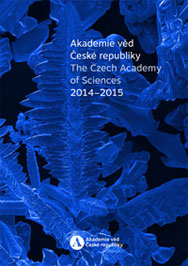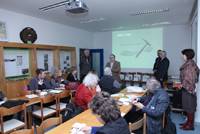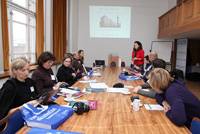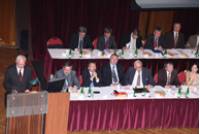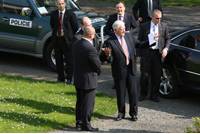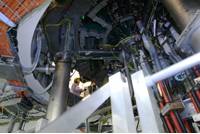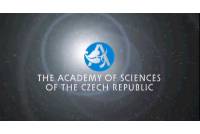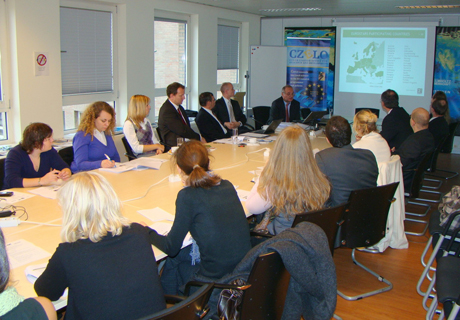
Archiv kanceláře CZELO
EUREKA projects entail cooperation between companies, research institutes and universities
from at least two EUREKA member countries. It is the participants themselves that initiate and
design their project cooperation. The content of the projects is promoted in accordance with the
particular needs of each company. Nevertheless, EUREKA can also promote the development of EUREKA
clusters in technological areas that are considered to be of strategic importance for Europe.
EUREKA certifies approved projects by means of a "stamp of quality", which apart from being a
promotional element and of acknowledgement of the technological level of the promoted project,
makes the project eligible for public financing. Each EUREKA member country takes on the financing
of its companies and research institutes and according to national rules.
Since 1985, EUREKA has already seen more than 26 500 MEuro of public-private investment in
over 4 000 individual and cluster projects, with more than 15 000 project participants. The
industrial organisations (both SMEs and large companies) are representing two third of all
participants.
EUREKA is seen long the champion of SMEs and renews as an advocate of innovative industrial
growth by industry itself. EUREKA has created a new important action with the launch of the
Eurostars programme in 2007, supporting R&D-performing SMEs. Eurostars is designed to align and
synchronise relevant national research and innovation efforts in a joint programme funded by both
participating EUREKA member countries and the Commission, marking an important contribution to the
ERA.
Results stemming from EUREKA projects are everywhere, e.g. GSM mobile phone technology, GPS
navigation systems, smartcards to support mobile and electronic commerce, flight ticketing system,
technologies to monitor and limit environment pollution, special effects software for cinema, and
many others.
The EUREKA network and current activity of Germany's EUREKA Presidency are analysing how to
attract and facilitate expansion of EUREKA beyond Europe's borders and which appropriate tools are
necessary to help companies and research institutes to create more project partnership worldwide.
Enlarging the number of non-European countries, which have a great research potential and
tremendous productivity capacity, is one of EUREKA´s priority and this topic will be discussed at
the EUREKA Ministerial Conference in Berlin in June 2010.
The EUREKA website www.eurekanetwork.org provides access to a wide range of supporting
information as well the project database. Information about the Eurostars programme including
explanation how to submit electronically the Eurostars project application is available at the
website www.eurostars-eureka.eu In all EUREKA member countries is possible to find also a contact
to EUREKA National project coordinator via the website link www.eurekanetwork.org/in-your-country
The Czech Republic joined as EUREKA member in 1995 and the Ministry of Education, Youth and
Sports (MEYS) is the national co-ordinator and runs the national EUREKA office including targeted
co-funding for EUREKA projects. MEYS processes the Czech project applications to EUREKA and is
involved in their assessment-making process. The Association of Innovative Entrepreneurship of the
Czech Republic on behalf of assignment of MEYS provides spreading information about EUREKA and can
also help to potential participants with the design of projects including helping to find suitable
partners in other countries.
In 2010, Czech organisations participated in approximately 270 EUREKA projects already both
finished and running projects with a total budget more than 110 MEuro. Some Institutes of Academy
of Sciences of the Czech Republic, e.g. the Institute of Molecular Genetics, the Institute of
Plasma Physics are among Czech participants of EUREKA projects with very successful market
application.
Svatopluk Halada
national expert
EUREKA Secretariat, Brussels
11 Feb 2010
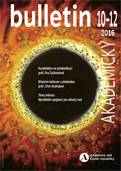

 Česky
Česky


